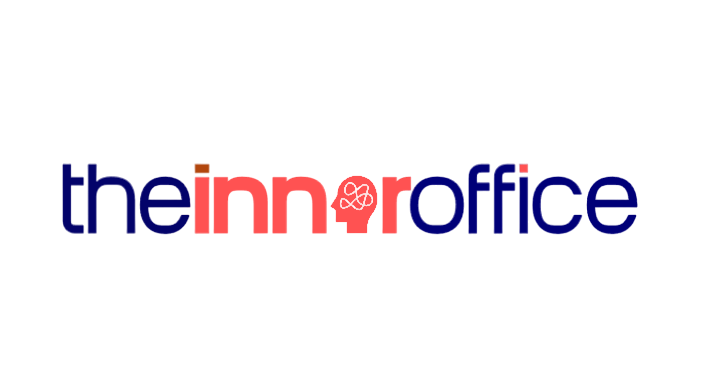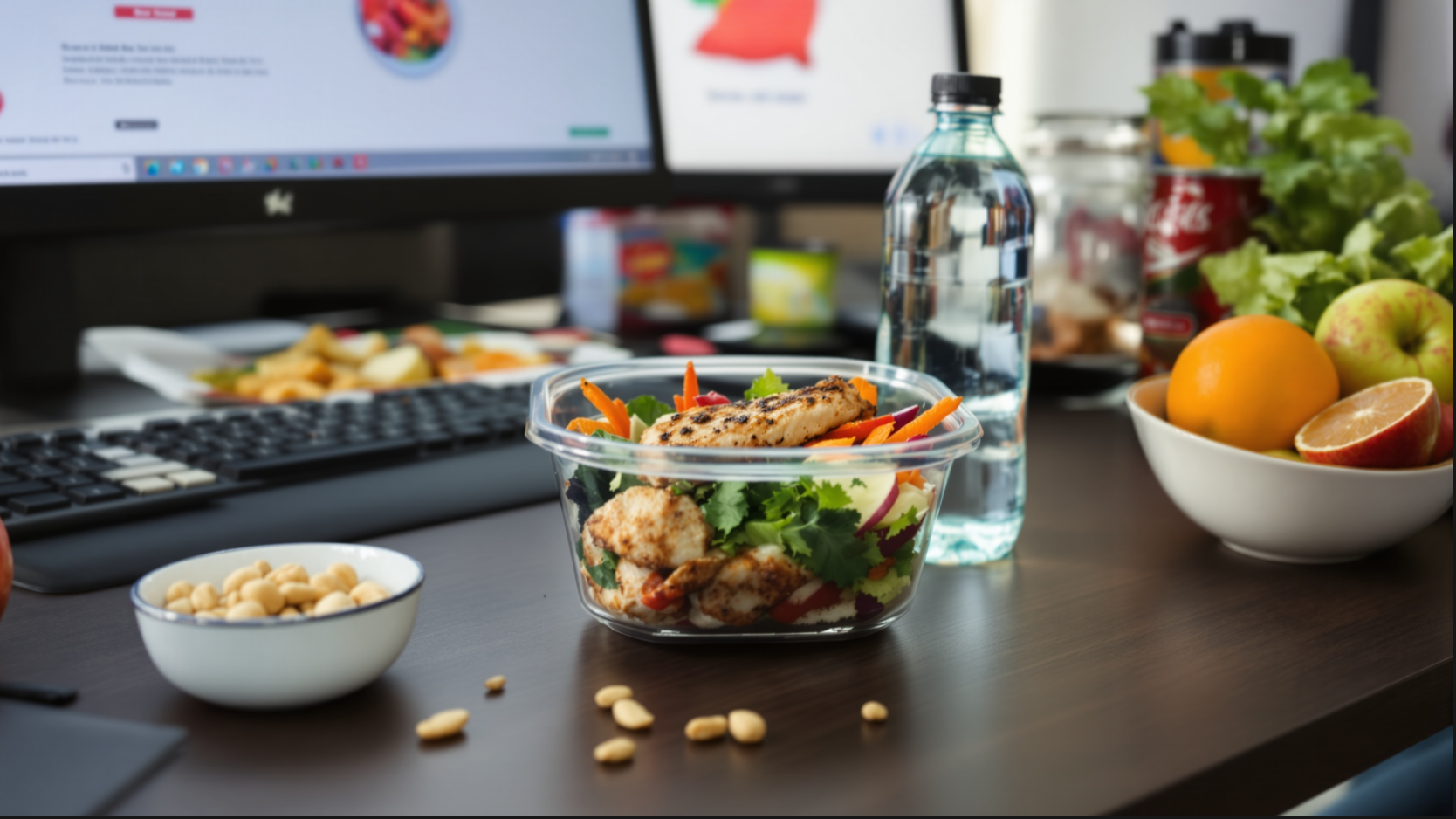The 3 PM Sugar Crash Cycle
Alice had a secret stash in her desk drawer. Not drugs. Not alcohol. Something more socially acceptable but equally problematic: an endless supply of sweets, biscuits, and chocolate.
Her pattern was predictable:
9 AM: Strong coffee and mandazi on the way to work 11 AM: Starting to drag, another coffee 1 PM: Quick lunch from the local hotel—usually pilau or chips 3 PM: The crash hits hard. Brain fog. Exhaustion. Irritability. 3:15 PM: Raid the drawer. Chocolate bar. Immediate relief. 4:30 PM: Brief energy spike, then another crash 5 PM: More coffee to finish the workday 7 PM: Exhausted commute home 8 PM: Large dinner because she’s starving 10 PM: Can’t sleep despite exhaustion
This wasn’t a one-day pattern. This was Alice’s daily reality for three years.
She knew it wasn’t healthy. She’d tried various diets—keto, intermittent fasting, juice cleanses. Each lasted a few days before the demands of her work schedule made them impossible to maintain.
Alice assumed the problem was her lack of willpower. The real problem was that she was fighting her body’s biology with strategies that didn’t fit her reality.
The Nutrition Trap for Busy Professionals
Let’s be honest about why most nutrition advice fails for corporate professionals:
The Time Fallacy
Most nutrition advice assumes you have time for:
- Elaborate meal planning
- Shopping at multiple markets for fresh ingredients
- Cooking from scratch twice daily
- Preparing elaborate healthy snacks
But you’re already stretched thin managing your career, family, and responsibilities. Adding complex nutrition requirements feels impossible.
The Willpower Myth
We’re told that eating well is about discipline. Just choose salad over chips. Just resist the office snacks. Just meal prep every Sunday.
But willpower is a finite resource. By 3 PM, after using willpower all day for work decisions, difficult conversations, and managing stress, you have nothing left to resist the sugar calling from your drawer.
The Perfect Meal Illusion
Health influencers post beautiful meals with exotic ingredients. But you’re working in Westlands, not a wellness retreat. Your lunch options are local hotels, fast food, or whatever you managed to pack.
The gap between Instagram nutrition and your reality feels impossible to bridge.
The Economic Reality
Some nutrition advice requires expensive organic produce, specialty stores, or premium ingredients. That’s not realistic for many Kenyan professionals managing multiple financial obligations.
What Actually Happens When You Eat for Work Performance
Understanding the mechanism makes better choices easier:
The Blood Sugar Rollercoaster
When you eat foods high in simple carbs and sugar (mandazi, white bread, sweets, sodas), here’s what happens:
- Blood sugar spikes rapidly
- Your pancreas releases insulin to handle the spike
- Blood sugar crashes below baseline
- Your brain panics (it needs steady glucose)
- You crave more sugar
- The cycle repeats
Each cycle leaves you more tired, more irritable, and less cognitively sharp than before.
Brain Fuel Requirements
Your brain uses 20% of your total energy despite being only 2% of body weight. It requires steady glucose supply for optimal function.
Feed it erratically, and it performs erratically. Feed it steadily, and it performs steadily.
The Inflammatory Response
Highly processed foods trigger inflammation in your body. Chronic inflammation affects:
- Cognitive function (brain fog)
- Mood regulation (irritability, anxiety)
- Energy levels (persistent fatigue)
- Immune function (frequent illness)
The Gut-Brain Connection
Emerging research shows that gut health directly affects mental health and cognitive performance. The foods you eat literally shape your brain function through the gut-brain axis.
Poor diet → poor gut health → poor mental performance.
The Professional’s Practical Nutrition Strategy
Here’s what actually works for busy professionals:
Strategy 1: The Protein Priority
Every meal and snack should include protein. Why? Protein:
- Stabilizes blood sugar
- Increases satiety (you feel full longer)
- Supports muscle maintenance
- Requires more energy to digest (slight metabolic boost)
Practical applications:
- Morning: Eggs with breakfast (not just mandazi)
- Lunch: Ensure your nyama choma, chicken, or fish is substantial
- Snacks: Roasted peanuts, boiled eggs, cheese
- Dinner: Protein-forward meal
You don’t need to calculate grams. Just ensure protein is present in every eating occasion.
Strategy 2: The Vegetable Volume
Vegetables provide fiber (blood sugar stability), micronutrients (cellular function), and volume (satiety) with minimal calories.
The simple rule: Half your lunch plate should be vegetables.
At local hotels:
- Request extra kachumbari
- Choose sukuma wiki or cabbage
- Add a side salad
- Pick meals with vegetable components
Strategy 3: The Smart Carb Swap
You don’t need to eliminate carbs (ugali, rice, chapati are cultural staples and perfectly fine). Just make them work better:
Instead of: White rice or excess portions Try: Smaller portion with more vegetables and protein
Instead of: Chips as the main item Try: Chips as a side with grilled chicken and salad
Instead of: Soda with lunch Try: Water or unsweetened tea
You’re not removing foods—you’re rebalancing proportions.
Strategy 4: The Snack Replacement
Current drawer: Sweets, biscuits, crisps Better drawer: Roasted nuts, boiled eggs (if refrigeration available), fruit, dark chocolate (70%+)
The goal isn’t perfection. It’s having better options available when the 3 PM hunger hits.
Strategy 5: The Hydration-First Rule
Often what feels like hunger is actually thirst or dehydration-related fatigue.
Before reaching for a snack, drink a full glass of water and wait 5 minutes. If still hungry, eat. If not, you just saved calories and stabilized energy with water.
The Sunday Meal Prep Strategy (Simplified)
Most meal prep advice is overwhelming. Here’s a version that actually works:
2-3 Hours on Sunday Afternoon
Protein Prep:
- Grill or bake several chicken breasts
- Boil a dozen eggs
- Prepare beef stew or fish (Choose 1-2 proteins, not all of them)
Carb Prep:
- Cook a large batch of rice, ugali, or potatoes
- Store in portions
Vegetable Prep:
- Wash and chop vegetables for the week
- Store in containers
- Some can be pre-cooked (spinach, cabbage)
Assembly During Week: Grab protein, carb, and vegetables. Combine in container. Microwave if needed. Five-minute lunch packed.
The Local Hotel Strategy
When eating out (which many professionals do regularly):
Best Choices:
- Nyama choma with kachumbari and ugali
- Grilled fish with vegetables
- Chicken with sukuma and rice
- Githeri (balanced meal)
Moderate Choices:
- Pilau (add vegetables and protein if possible)
- Ugali with beef stew and vegetables
Limit:
- Chips and sausage as main meal
- Heavy fried foods regularly
- Meals without vegetables
The Office Culture Navigation
Office life presents unique challenges:
Birthday Cakes
You can have a small slice occasionally. The problem isn’t the once-monthly birthday cake—it’s the daily sugar habit.
Client Lunches
Order what aligns with your strategy. Confident professionals choose based on their needs, not what others order.
Late Meetings
Keep emergency snacks: nuts, fruit, protein bars. This prevents arriving home starving and overeating.
Coffee Culture
Coffee itself isn’t the problem. It’s the sugar added to it and the lack of food accompanying it.
Black coffee or with minimal sugar is fine. But pair it with protein (eggs, nuts) not sugar (mandazi, doughnuts).
The Real Results
Peter, an accountant, implemented the protein priority rule. Within two weeks:
- His 3 PM crash diminished significantly
- His afternoon focus improved noticeably
- He stopped needing multiple afternoon coffees
- His evening energy was better (he actually played with his kids)
No complex diet. Just ensuring protein at every meal.
Mary, a project manager, started simple meal prep. Benefits:
- Saved money (buying lunch daily was expensive)
- Saved time (no lunch queue or deciding where to eat)
- Better food choices (planned vs. impulsive)
- More energy throughout the day
James, who traveled frequently for work, learned to navigate hotel breakfasts and local restaurants strategically. Even on the road, his energy remained stable because his food choices supported rather than sabotaged his performance.
The Common Mistakes
Mistake 1: Skipping Breakfast
“I’m not hungry in the morning” usually means your dinner was too large or too late. Skipping breakfast sets up blood sugar instability all day.
Start with something small and protein-rich: boiled eggs, yogurt with nuts, or peanut butter on whole grain bread.
Mistake 2: The Salad-Only Lunch
A bowl of vegetables with no protein leaves you starving by 3 PM. Add chicken, eggs, or beans.
Mistake 3: Extreme Restriction
Cutting out entire food groups or drastically reducing calories creates unsustainable plans that end in binge eating.
Small, consistent improvements beat dramatic temporary changes.
Mistake 4: Ignoring Cultural Foods
You don’t need to eat quinoa bowls and açai berries. Ugali, sukuma, githeri, nyama choma—traditional Kenyan foods can absolutely support high performance when balanced properly.
The Supplement Question
Do you need supplements?
For most professionals eating reasonably well: probably not essential, but some can help:
Consider:
- Multivitamin (insurance policy for micronutrient gaps)
- Vitamin D (if limited sun exposure)
- Omega-3 (if low fish intake)
Probably Don’t Need:
- Expensive protein powders (real food works)
- Detox teas (your liver detoxifies naturally)
- Fat burners (diet and movement are more effective)
Always Check with Healthcare Provider: Especially if you have health conditions or take medications.
The Economic Efficiency
Smart nutrition isn’t necessarily expensive:
Affordable Proteins:
- Eggs (cheapest protein source)
- Beans and lentils
- Local fish
- Chicken (buying whole and cutting yourself saves money)
Affordable Vegetables:
- Sukuma wiki
- Cabbage
- Carrots
- Tomatoes
- Onions
Cost Comparison:
- Daily lunch at fast food: 300-500 KSh
- Packed lunch from meal prep: 100-150 KSh
- Monthly savings: 4,000-7,000 KSh
- Annual savings: 48,000-84,000 KSh
The money saved on better nutrition choices could fund a gym membership, better sleep equipment, or wellness activities.
The Social Pressure Strategy
“Everyone orders chips at lunch”
Order what serves your performance. Confidence in your choices is professional, not antisocial.
“My family expects large dinners”
Explain you’re optimizing performance. Show results. Often families become supportive when they see benefits.
“Office snacks are everywhere”
Bring better snacks. Keep them visible. You’ll likely inspire colleagues to improve their choices too.
The 80/20 Approach
Perfection isn’t required. Consistency is.
Aim for 80% of meals supporting your performance. The remaining 20% can be flexible—social occasions, celebrations, cultural events, or simply enjoying foods you love.
This prevents the all-or-nothing thinking that leads to diet failure.
Your 7-Day Challenge
Day 1-2: Add protein to every meal. Nothing else changes.
Day 3-4: Add vegetables to lunch and dinner.
Day 5-6: Replace one processed snack with whole food option.
Day 7: Reflect on energy, focus, and mood changes.
Track:
- Energy levels throughout the day
- Afternoon crash severity
- Mental clarity
- Mood stability
- Sleep quality
The Bottom Line
Nutrition for professional performance isn’t about:
- Restrictive diets
- Exotic superfoods
- Perfect meal timing
- Eliminating entire food groups
It’s about:
- Stable blood sugar throughout your workday
- Adequate protein for satiety and brain function
- Sufficient vegetables for micronutrients and fiber
- Hydration for cognitive performance
- Consistency over perfection
You don’t need a chef, nutritionist, or nutrition degree. You need a few simple strategies that fit into your actual life.
Your lunch choices today affect your presentation performance this afternoon, your patience in evening meetings, and your decision quality tomorrow morning.
Food isn’t just fuel. It’s information—signals to your body about what resources are available and how to perform.
Feed yourself for the performance you want, not just for the convenience of the moment.
Your career depends on your brain working well. Your brain depends on you feeding it well.
Simple as that.

